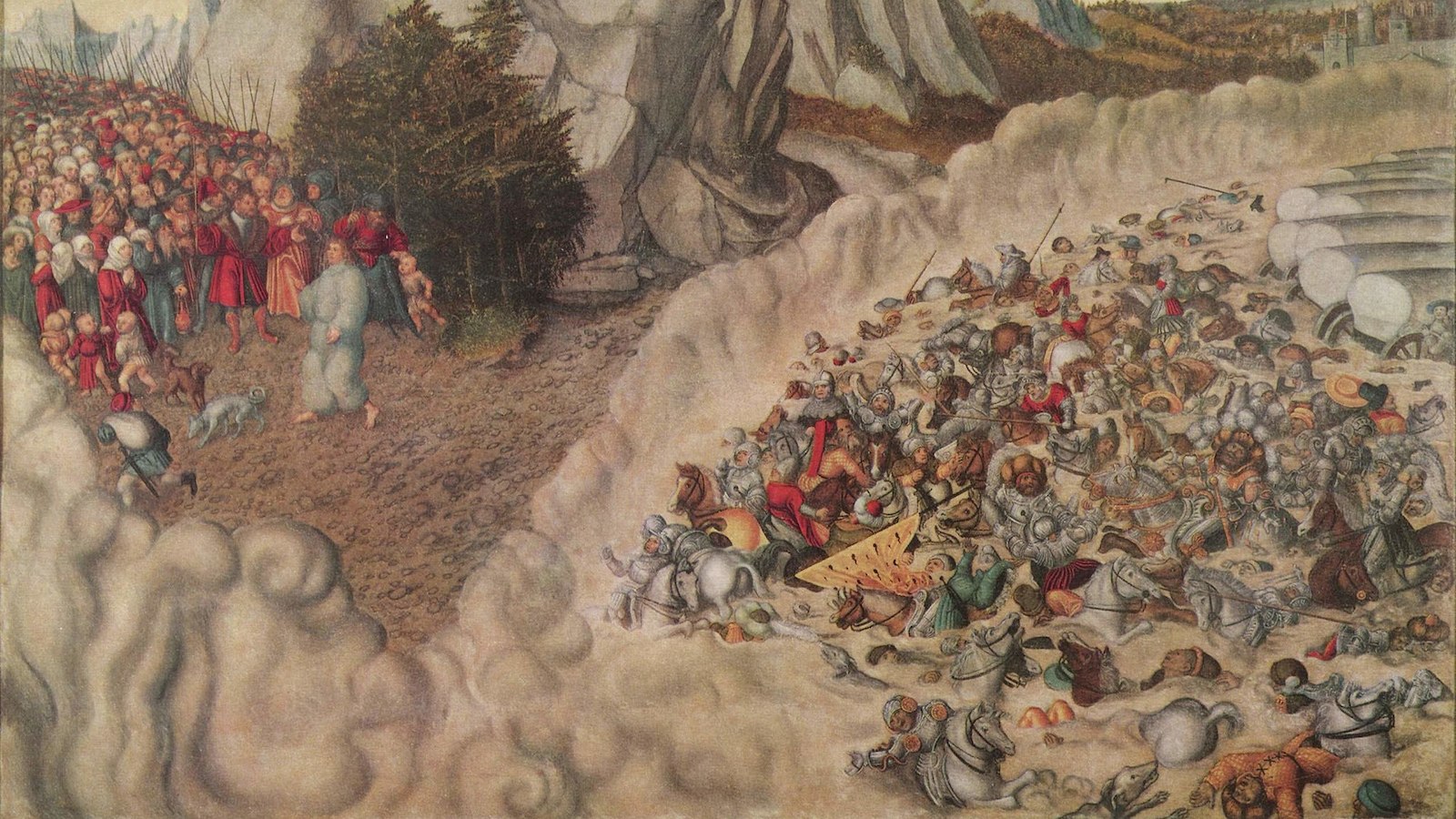Commentary on Parashat Beshalach, Exodus 13:17-17:16
For most of the past 3,000 years, civilization was shaped by smallpox. The disease decimated entire populations, destroyed cultures, swept across continents, and altered the course of human history. Smallpox killed five reigning European monarchs in the 18th century alone. For people born in previous centuries, the disease was a fact of nature, a part of life on this planet that appeared as impossible to prevent as natural disasters.
And yet, over the last decades, the facts of nature changed. Widespread vaccination campaigns throughout the 19th and 20th centuries worked. The disease was eradicated. In 1979 the World Health Organization certified the end of smallpox.
The Pivotal Moment
In this week’s Torah portion, Beshalach, the Israelites also faced a fact of nature that appeared immutable and devastatingly dangerous. As they fled slavery with their taskmasters in hot pursuit, they came up against the Sea of Reeds —a churning, impassable ocean. But suddenly, their horizon literally expanded: “Moses held his arm out over the sea and the Eternal One drove back the sea with a strong east wind all that night, and turned the sea into dry ground (Exodus 14:21).”
This was arguably the pivotal moment in Jewish history. We tell and retell the story of the parting of the sea in every weekday, Shabbat, and holy day prayer service, morning and evening. It is recounted in prayer more frequently than the details of the creation of humanity or the giving of the Torah.
With your help, My Jewish Learning can provide endless opportunities for learning, connection and discovery.
Why do we need to hear this story so often?
Because it is in this moment that we realized that nothing is immutable. We saw that seas can split open and diseases can be eradicated. The facts of the world ceased to be facts.
And we responded to this new awareness with action as we charged forward into the sea: “The waters were split, and the Israelites went into the sea on dry ground, the waters forming a wall for them on their right and on their left (Exodus 14:21-22).”
Change Through Human Deeds
I often find myself looking at the world from the perspective of the Israelites before the sea split. The massive gap in wealth between rich and poor nations feels as absolute and unchangeable to me as the Sea of Reeds must have felt to Moses as he saw it in the distance, and as unassailable as smallpox appeared to my great-grandparents. However, this week’s parashah reminds me that nothing is truly unchangeable.
Life can change in the Global South through human deeds. We can take action through advocacy, service, and education. Changes that would transform the quality of life in the world’s poorest countries are not only necessary, but possible.
The world’s poorest countries currently spend billions of dollars to pay off old debts to wealthy nations like the United States. Debt relief would expand the horizons of the Global South much as the parting of the Sea of Reeds did for the Israelites. Imagine how access to HIV treatment, education for women, and food security would throw open the boundaries of our shared global community.
A Wonderful Realization
The Israelites responded to the splitting of the sea with songs of praise. The Midrash teaches that this was the first time people collectively praised God. “Ah, this,” says God in the Midrash (Exodus Rabbah 23:4), “is what I have been waiting for!”
What exactly was God waiting for? Certainly God was not in need of human praise. Rather, God was waiting for humanity to recognize that the borders of our world are never fixed. And God was waiting for us to respond to this knowledge with awe and with action.
The miracle of the Sea of Reeds is not just that the ocean parted. After all, an omnipotent God could split the Sea at any time. The miracle is that the Israelites saw the ocean divide and, despite everything they had been taught about the way the world works, they charged forward into the narrow dry path which appeared like a sliver of hope between the waves.
This week, as we hear the story of the crossing of the Sea of Reeds, may each of us realize that the horizons of our world are broader than we think: oceans can crack open, diseases can be eradicated, and the balance of world wealth can be shifted. And may we respond to this wonderful realization as the Israelites did at the Sea of Reeds–with acts of justice and with shouts of joy.
Provided by American Jewish World Service, pursuing global justice through grassroots change.
Midrash
Pronounced: MIDD-rash, Origin: Hebrew, the process of interpretation by which the rabbis filled in “gaps” found in the Torah.



